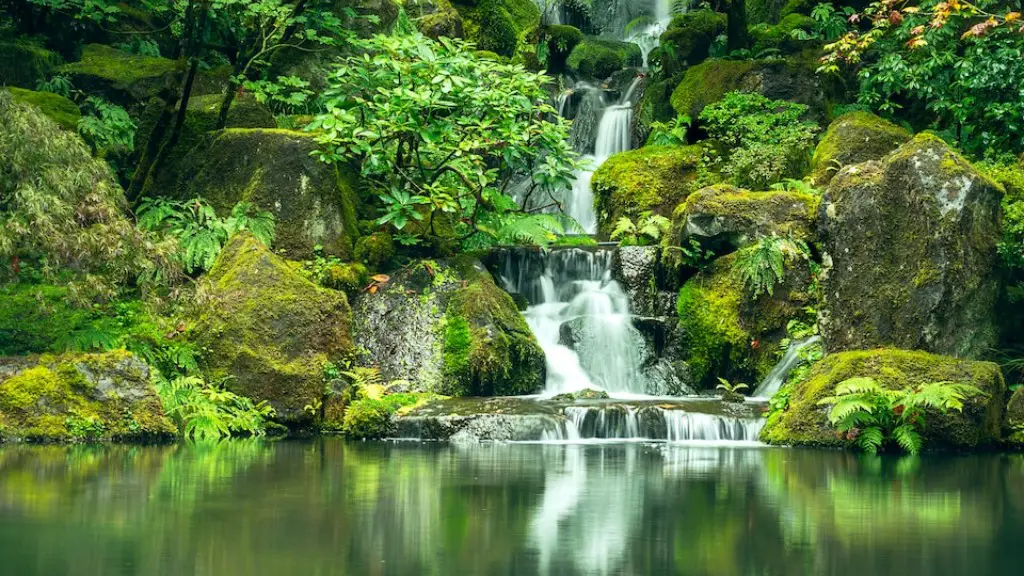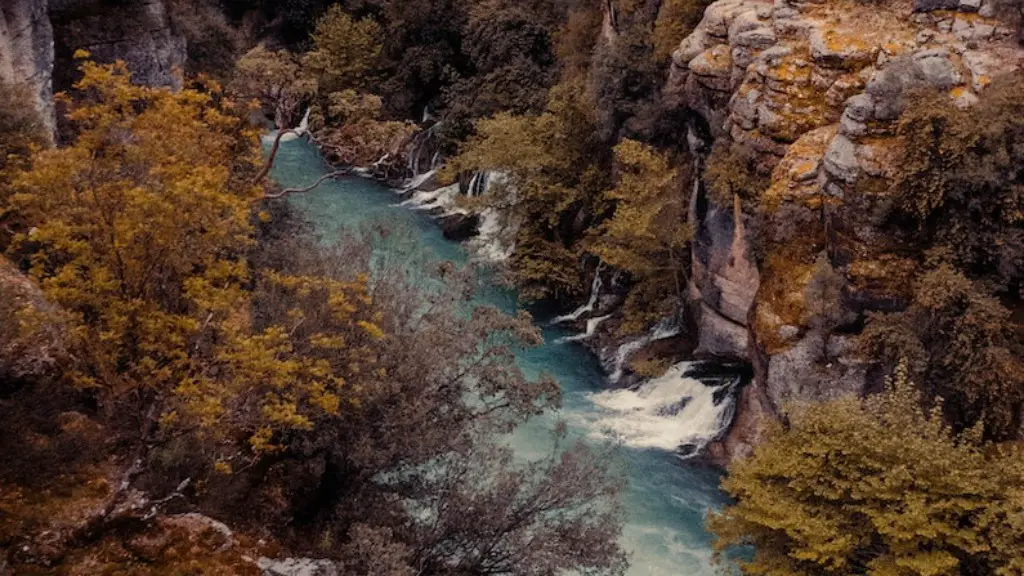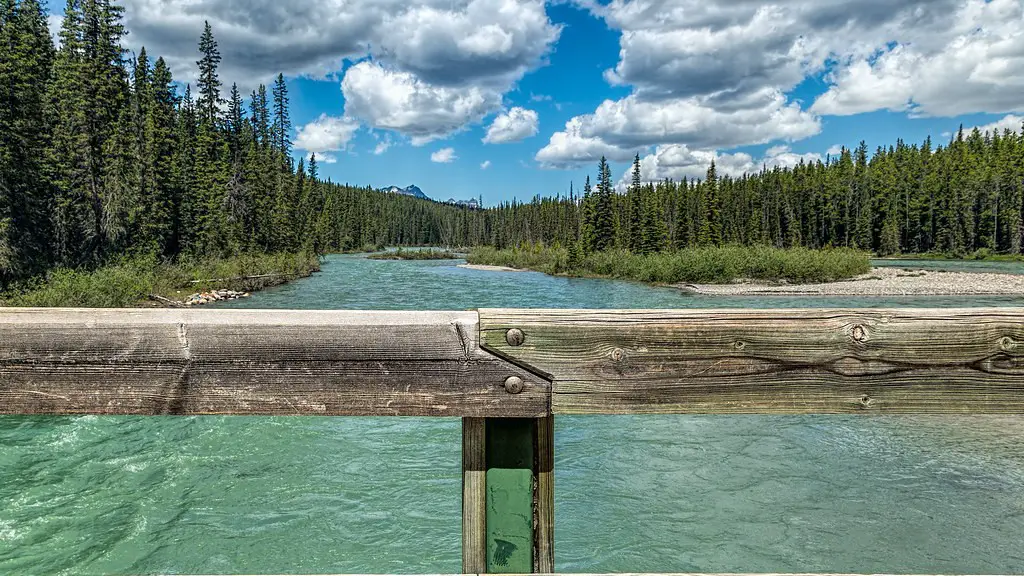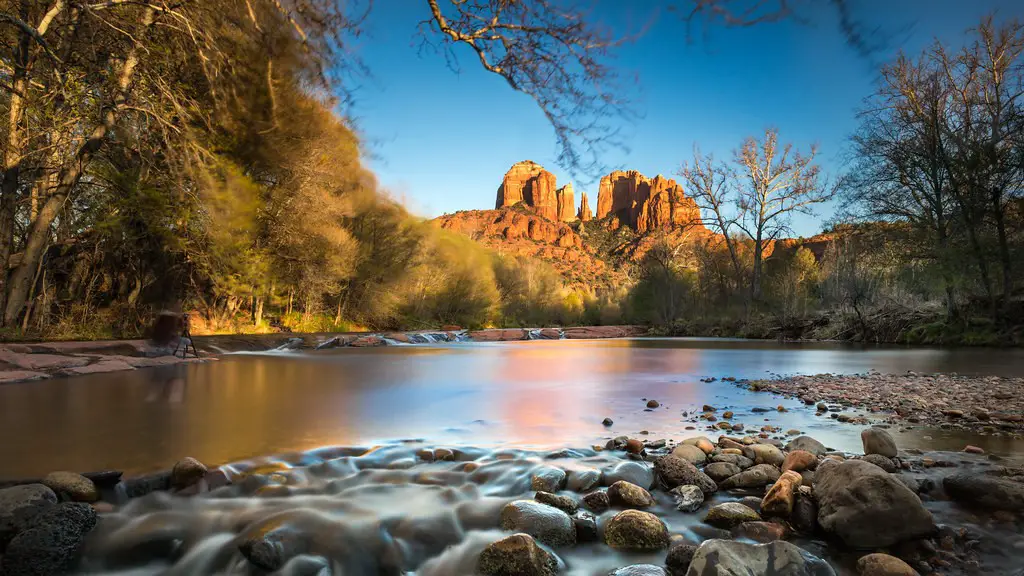Biodiversity in the Mississippi River Delta
The Mississippi River Delta is a vast area of nature including a variety of wildlife species, mangrove forests and wetlands. This corner of the world is home to numerous plant and animal species, and is a crucial element when it comes to sustaining life in the Gulf of Mexico.
The banks of the Mississippi are lined with all kinds of vegetative cover and it’s a bird-watcher’s paradise. The delta is also a haven for humans and fish alike. There, fishermen land their boats in the wetlands to catch bass, catfish and other fresh-water species.
While fishing, explorers also come across a variety of animals, including alligators and turtles. A wide variety of birds, such as egrets, ibises, pelicans and ospreys, flock to the area in search of food. The shoals, marshes, swamps and bays of the delta are essential breeding and nesting grounds for many species, helping to sustain a vast array of life in the region.
The entire Mississippi River Delta region is also composed of many rivers, streams, and several estuaries that flow into the Gulf of Mexico. This area is a very sensitive environment as it is naturally subject to natural disasters such as floods and droughts, as well as man-made disasters such as oil spills and other environmental catastrophes.
The fragile ecosystem of the Mississippi Delta is a result of the water levels in the river, which can be altered from the dams and levees that run along it. Professional biologists and conservationists have found that the flow of water can bring in various species of fish, modify the soil quality and provide invaluable resources for the creatures that call this place home.
The Mississippi Delta is one of the largest wetlands in the United States, and is the largest contributor to the Gulf of Mexico. It provides valuable habitat for the many wildlife species that populate the region, and it is essential for the preservation of these animals and plants. The mouth of the Mississippi is one of the most important ecosystems on the Gulf Coast, and it is worth protecting.
Sources of Pollution in the Mississippi River Delta
The mouth of the Mississippi is not only a popular spot for recreation and sightseeing but it is also a mother of industrial pollution. Numerous industries have been dumping their waste into the Mississippi River Delta over many years. This has caused some of the water to become polluted, endangering aquatic life in this area and creating further environmental problems.
Due to massive amounts of industrial waste and nutrient runoff from agricultural fields, the mouth of the Mississippi River Delta is rife with pollution. Heavy metals, eutrophication, sediment, and blackwater all pollute the waters of the delta, changing the ecological balance. The eutrophication in particular can lead to an excessive growth of aquatic plants due to the nutrient-rich runoff. This causes the under-oxygenated water, which can lead to fish kills and other issues.
Oil spills have also caused significant damage to the Mississippi River Delta region. This type of pollution is particularly devastating because oil floats on the surface of the water, suffocating and killing the aquatic life beneath. The oil slicks can also cause algal blooms, which can further damage the ecosystem. Additionally, crude oil can seep into the sediment, contaminating it and causing a flux of toxins and chemicals into the food chain.
The pollution in the area is so severe that more extreme conservation laws have been put in place to protect the Mississippi River Delta from further contamination. Unfortunately, these efforts are not enough to resolve the crisis. Conservationists and environmental organizations are calling for stronger regulations and governmental policy changes to ensure the health of the delta.
Effects of Pollution on the Mississippi River Delta
The environmental pollution and man-made disasters taking place in the Mississippi River Delta have had detrimental effects on the creatures and plants that inhabit this fragile ecosystem. Studies show that water quality in the delta has decreased significantly as a result of pollution, which has led to a decrease in the diversity of aquatic life.
The Mississippi River Delta has been facing numerous issues including an extreme decrease in fish populations due to eutrophication and other pollutants. The survival of the numerous species that inhabit the delta is now in jeopardy, and efforts must be taken to protect them.
Additionally, the waters of the Mississippi have become oxygen-depleted, leading to dead zones in the delta region. This is a major issue because the lack of oxygen forces fish, crustaceans and other aquatic animals to flee or perish in the area. This leads to a decrease in fishing yields and a decrease in biodiversity in the region.
Oil spills and chemical runoff have also had a profound effect on the health of the delta, causing large-scale environmental crises. The explosion of the Deepwater Horizon oil rig off the coast of Louisiana in 2010 is a prime example. This catastrophic event led to an extensive oil spill which threatened the entire ecosystem of the delta.
Extensive research and conservation efforts are required to protect this delicate area and promote ecological balance in the Mississippi River Delta.
Conservation in the Mississippi River Delta
Conservation efforts are being undertaken in the Mississippi River Delta to combat the pollution and other environmental issues plaguing the area. Local and federal agencies, environmental organizations, conservationists, and other stakeholders are working together to promote healthy habitats in the region.
Organizations such as The Mississippi River Delta Coalition are leading the charge in working towards reducing pollution in the delta. For instance, the coalition is running a campaign to limit the amount of oil and water going into the delta. They are also working on improving the quality of the soil and water in the area, as well as promoting habitat restoration projects.
In addition, conservationists are pushing for more regulated fishing practices, as well as more rigorous clean-up protocols for oil spills. These initiatives have had a positive effect on the water quality in the Mississippi River Delta region, although conservationists are still working to improve the health of the area.
The Delta Alliance, another organization devoted to the conservation of the delta, is working to create new policies and regulations to protect the region. They have also initiated several research projects to gain a better understanding of the area and its inhabitants.
Overall, there are numerous efforts being made to protect the fragile ecosystem of the Mississippi River Delta from further damage. These initiatives have encouraged conversations about the importance of preserving this area, and it is through these conversations that the delta can properly be saved.
Impact of Human Activity on the Mississippi River Delta
Human activity has had a profoundly negative impact on the Mississippi River Delta over the past few decades. The construction of dams and levees, pollution, over-fishing and urban development have all had a negative effect on the health of this delicate ecosystem.
The construction of dams along the river has caused significant changes to the water flow and sediment levels of the delta. This has caused a decrease in the amount of clean water running through the region, endangering the ecology of the region.
Urban development in the area has also caused pollution and other environmental issues. The runoff from roads and rooftops contain chemicals and other contaminants that can damage the delta region, causing a decrease in the health of its inhabitants.
Over-fishing has also caused significant damage to the delta region. This is because the more fish are taken from the area, the fewer there are to reproduce and sustain the area’s ecosystems. This leads to a decrease in the biodiversity of the region, which has a major impact on the health of the area.
In addition, oil rigs and pipelines are a major source of pollution in the Mississippi River Delta. The oil spills associated with these rigs have caused immense damage to the environment, endangering the numerous species living in this area.
The Mississippi River Delta is a precious ecosystem that needs to be preserved. Conservation organizations and other stakeholders are doing their best to protect this area from further destruction, but it is up to humans to ensure its long-term health.
Preserving the Mississippi River Delta for Future Generations
Humans have an obligation to protect the Mississippi River Delta for future generations. This vibrant ecosystem is home to a variety of animals and plants, and it plays an important role in sustaining the health of the Gulf of Mexico.
Protecting the delta for future generations involves a variety of initiatives. Conservationists and environmental organizations are pushing for stronger regulations and governmental policy changes to restore the water quality, improve the soil and promote healthy habitats in the region.
What’s more, educational programs are being implemented in schools and other organizations to raise awareness about the importance of the delta. Educating people on the issue of conservation can have a profound effect on how the delta is viewed and treated, both now and in the future.
Preserving the Mississippi River Delta requires an understanding of the issues affecting the area and an ability to act on these issues. By educating individuals and communities, supporting conservation efforts and understanding the importance of this precious ecosystem, we can ensure that the delta is preserved for generations to come.





